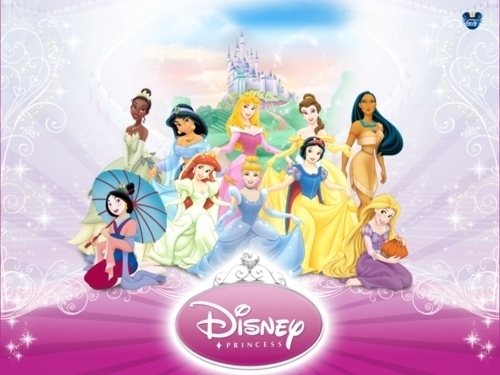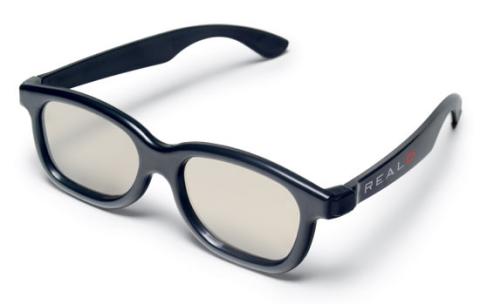Ive been wanting to do this for a while, but it's taken me forever to find a good list of films. I have now found one and I'm quite proud to say that I've already seen 41 of the films on the list. Some are modern films, others less so. But I feel that all the films on the list are worth seeing, even if they're in black and white, old, weird or even independent. All the films on the list are quite well known and even the directors are well known. I hope you will be inspired to watch all of them, because they are good films. I will update you on my progress. I'm hoping to watch them all by the end of the year. I know that's a long period and not really a challenge, but I do have a life and a uni course that needs passing :P
Have fun and speak soon :D
The List
1. The Godfather (Francis Ford Coppola, 1972)
2. Raiders of the Lost Ark (Steven Spielberg, 1981)
3. Star Wars Episode V: Empire Strikes Back (Irvin Kershner, 1980)
4. Shawshank Redemption (Frank Darabont, 1994)
5. Jaws (Steven Spielberg, 1975)
6. GoodFellas (Martin Scorsese, 1990)
7. Apocalypse Now (Francis Ford Coppola, 1979)
8. Singin’ in the Rain (Stanley Donen, Gene Kelly, 1952)
9. Pulp Fiction (Quentin Tarantino, 1994)
10. Fight Club (David Fincher, 1999)
11. Raging Bull (Martin Scorsese, 1980)
12. The Apartment (Billy Wilder, 1960)
13. Chinatown (Roman Polanski, 1974)
14. Once Upon a Time in the West (Sergio Leone, 1968)
15. The Dark Knight (Christopher Nolan, 2007)
16. 2001: A Space Odyssey (Stanley Kubrick, 1968)
17. Taxi Driver (Martin Scorsese, 1976)
18. Casablanca (Michael Curtiz)
19. The Godfather Part II (Francis Ford Coppola, 1974)
20. Blade Runner (Ridley Scott, 1982)
21. The
Third Man (Carol Reed, 1949)20. Blade Runner (Ridley Scott, 1982)
22. Star Wars Episode IV: A New Hope (George Lucas, 1977)
23. Back to the Future (Robert Zemeckis, 1985)
24. The Lord of the Rings: The Fellowship of the Ring (Peter Jackson, 2001)
25. The Good, the Bad, and the Ugly (Sergio Leone, 1967)
26. Dr. Strangelove (Stanley Kubrick 1964)
27. Some Like It Hot (Billy Wilder, 199)
28. Citizen Kane (Orson Welles, 1941)29. Die Hard (John McTiernan 1988)
30. Aliens (James Cameron, 1986)
31. Gone with the Wind (Victor Fleming, George Cukor, Sam Wood, 1939)
32. Butch Cassidy and the Sundance Kid (George Roy Hill, 1969)
33. Alien (Ridley Scott, 1979)
34. The Lord of the Rings: The Return of the King (Peter Jackson, 2003)
35. Terminator 2: Judgement Day (James Cameron, 1991)
36. Andrei Rublev (Andrei Tarkovsky, 1969)
37. A Clockwork Orange (Stanley Kubrick, 1971)
38. Heat (Michael Mann, 1995)
39. The Matrix (The Wachowski Brothers, 1999)
40. Vertigo (Alfred Hitchcock, 1958)
41. The 400 Blows (Truffaut, 1959)
42. Kind Hearts and Coronets (Robert Hamer, 1949)
43. The Big Lebowski (The Coen Brothers, 1998)
44. Schindler’s List (Steven Spielberg, 1993)
45. Psycho (Alfred Hitchcock, 1960)
46. On The Waterfront (Elia Kazan 1954)
47. E.T. (Steven Spielberg, 1982)
48. This Is Spinal Tap (Rob Reiner, 1984)
49. Evil Dead 2 (Sam Raimi, 1987)
50. Seven Samurai (Akira Kurosawa, 1954)
51. 8 ½ (Federico Fellini, 1963)
52. The Shining (Stanley Kubrick, 1980)
53. Donnie Darko (Richard Kelly, 2001)
54. The Lord of the Rings: Two Towers (Peter Jackson, 2002)
55. La Dolce Vita (Federico Fellini, 1960)
56. Casino Royale (Martin Campbell, 2006)
57. Lawrence of Arabia (David Lean, 1962)
58. His Girl Friday (Howard Hawks, 1940)
59. Close Encounters of the Third Kind (Steven Spielberg, 1977)
60. Come and See (Elem Klimov, 1985)
61. The Usual Suspects (Bryan singer, 1995)
62. The Graduate (Mike Nichols, 1967)
63. Sunset Boulevard (Billy Wilder, 1950)
64. Oldboy (Chan-wook Park, 2003)
65. Harold and Maude (Hal Ashby, 1971)
66. Edward Scissorhands (Tim burton, 1990)
67. Tokyo Story (Yasujiro Ozu, 1953)
68. Annie Hall (Woody Alan, 1977)
69. Three Colours Red (Krzysztof Kieslowski, 1994)
70. Stand By Me (Rob Reiner, 1986)
71. The Night of the Hunter (Charles Laughton, 1955)
72. 12 Angry Men (Sidney Lumet, 1957)
73. Eternal Sunshine of a Spotless Mind (Michel Gondry, 2004)
74. The Treasure of Sierra Madre (John Huston, 1948)
75. A Matter of Life and Death (Michael Powell & Emeric Pressburger, 1946)
76. Manhattan (Woody Allen, 1979)
77. Spartacus (Stanley Kubrick, 1960)
78. Rosemary’s Baby (Roman Polanski, 1968)
79. The Thin Red Line (Terrence Malick, 1998)
80. The Life and Death of Colonel Blimp (Michael Powell & Emeric Pressburger, 1943)
81. Batman Begins (Christopher Nolan, 2005)
82. The Great Escape (John Sturges, 1963)
83. Brazil (Terry Gilliam, 1985)
84. L.A. Confidential (Curtis Hanson, 1997)
85. Blue Velvet (David Lynch, 1986)
86. Carrie (Brian de Palma, 1976)
87. The King of Comedy (Martin Scorsese, 1983)
88. Ferris Bueller’s Day Off (John Hughes, 1986)
89. Magnolia (Paul Thomas Anderson, 1999)
90. When Harry Met Sally (Rob Reiner, 1989)
91. Star Wars Episode VI: Return of the Jedi (Richard Marquand, 1983)
92. Once Upon a Time in America (Sergio Leone, 1984)
93. Spirit of the Beehive (Victor Erice, 1973)
94. The Wild Bunch (Sam Peckinpah, 1969)
95. Yojimbo (Akira Kurosawa, 1961)
96. American Beauty (Sam Mendes, 1999)
97. Reservoir Dogs (Quentin Tarantino, 1992)
98. North by Northwest (Alfred Hitchcock, 1959)
99. Toy Story (John Lasseter, 1995)
100. Network (Sidney Lumet, 1976)






